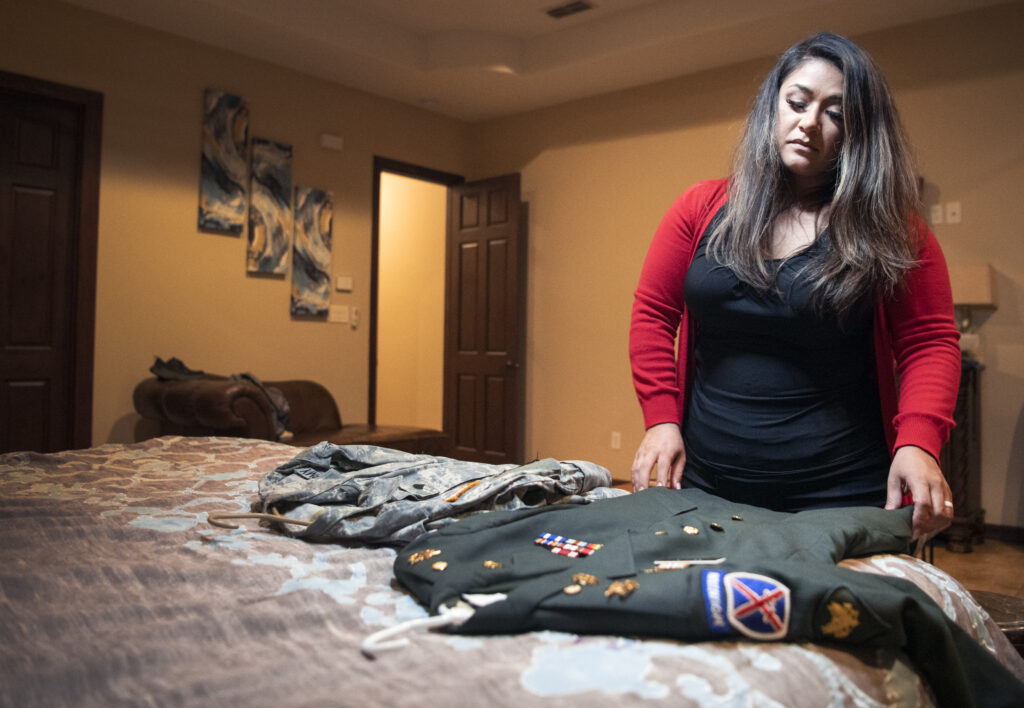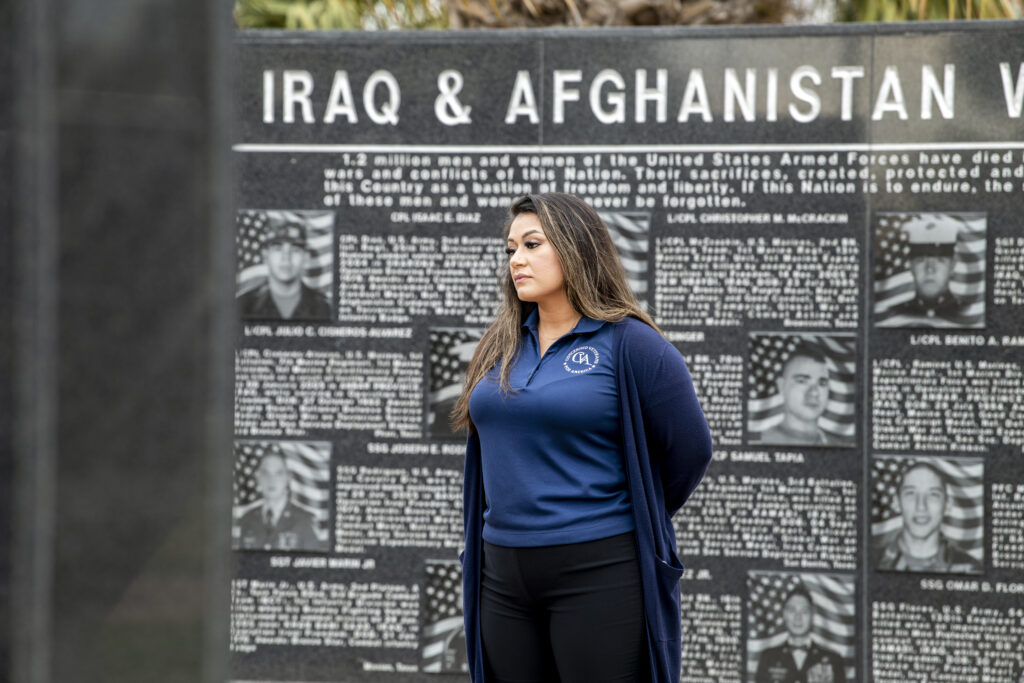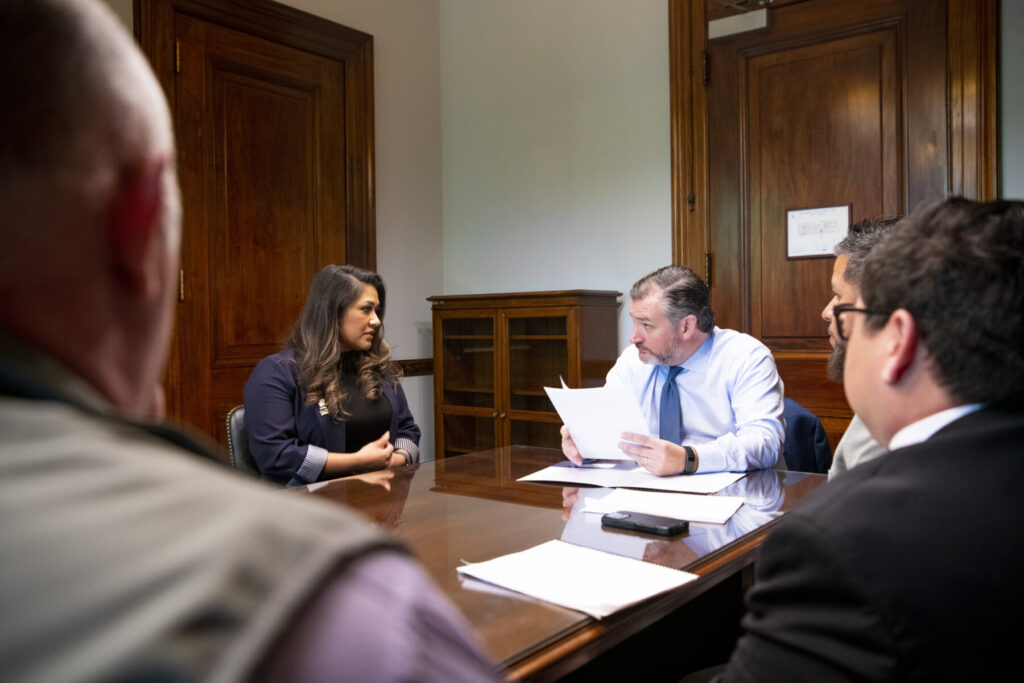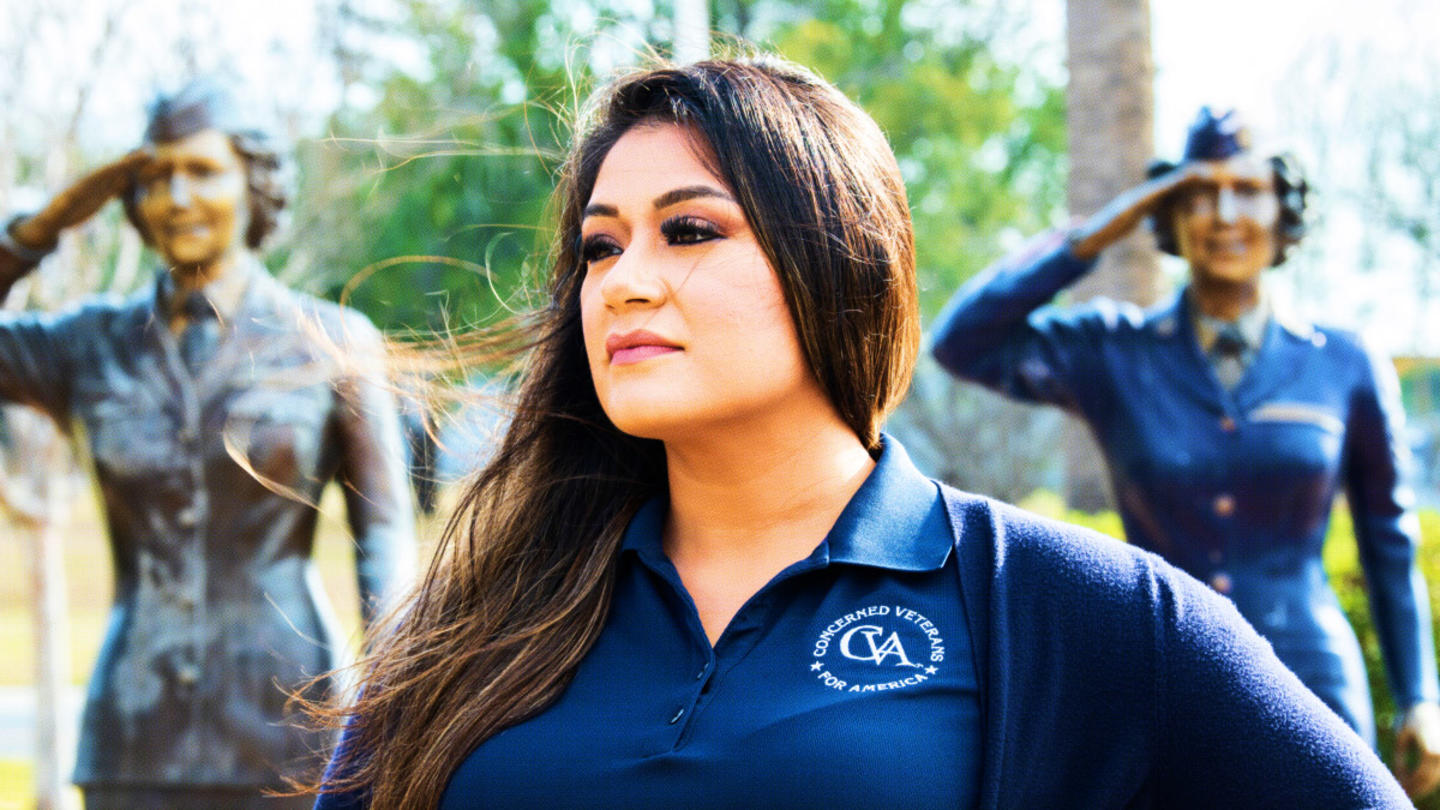Jessica Villarreal has always been one to jump into action.
At just 17 years old, Jessica joined the United States Army. "I wanted to do something more with my life, and giving back to my country was the way to do it," she said.
Jessica went on to serve two combat tours, one in Iraq and one in Afghanistan. When she returned, she was struggling with her mental health. She sought care at her local VA hospital where she experienced long wait times, doctors who dismissed her, and denial of the services she needed.
"The transition can be very difficult, and I struggled immensely," she said. "I felt very unwelcome, like I didn't matter, just dismissed as a person," Jessica recalls. "Every time I went into the parking lot, I would get anxiety. What am I going to encounter this time?"

She wanted her fellow combat veterans to receive better care than she had, so she earned a degree and became a VA social worker. She believed her unique position as a former patient, a combat veteran, and a caregiver to a Marine Corps combat veteran would enable her to work within the system to make a difference.
Once on the inside, she discovered just how broken the system really is.
How the VA is failing mental health for veterans
Nearly 58 million American adults struggle with some form of mental illness.
For veterans, the struggle is amplified and creates unique mental health challenges due to traumatic experiences, multiple deployments, obstacles transitioning back to civilian life, and feeling a loss of purpose after the military.
Post-traumatic stress disorder and traumatic brain injuries often follow vets home from the battlefield, and many cope with drugs or alcohol. Roughly 1 in 5 veterans with PTSD also struggle with substance use.
Veterans also face an increased risk of suicide. More veterans of the post-9/11 wars have died by suicide than were killed in combat.
The VA, or the U.S. Department of Veterans Affairs, is the largest health care system in the country. For most veterans, it is the first place they turn to for help. But veterans who seek help from the VA often have to wait weeks on end for an appointment.
A 2022 study found veterans wait an average 33.6 days for mental health appointments. That number could likely be higher as the VA has a track record of manipulating its wait times to make them appear shorter and overruling doctors' recommendations to keep veterans in the VA's system.

During her time as a VA social worker, Jessica saw the root causes of these problems firsthand.
From the outset, Jessica was told by her supervisor and VA administrative staff that she could spend a maximum of 15 minutes with each patient. Despite objections based on her own personal and professional experience, she was told she would face disciplinary action if she did not meet strict patient quotas.
Through tears, she shares a comment submitted to her clinic by one of her veteran patients.
"[The patient] told them that day they were giving the VA one more chance, because that day they had planned to kill themselves depending on the experience they were going to have," Jessica said.
Luckily, Jessica was able to give this veteran the care and attention they needed, but the story doesn't always end this way. The long wait times or hopelessness of being stuck in the VA's system can have devastating results.
"One bad experience can be detrimental in the life of a veteran struggling with mental health," Jessica said. "We can't afford to keep veterans stuck in this system that doesn't always serve them well, because they may not live to make it out."
Jessica gets emotional when she talks about how the VA could change for the better, especially in her home state of Texas. After trying for three years to help veterans from within the VA, she decided it was time to fix the problems at the VA from the outside.
VA reforms can help give veterans the care they need
In 2018, grassroots organization Concerned Veterans for America played a key role in the passage of the VA MISSION Act, part of which made it easier for veterans who have been forced to wait months for appointments to access health care options outside of the VA much more quickly.
Ever since the law passed, the number of veterans seeking community care has increased. But barriers still exist: USA Today found that the VA is "actively dissuading veterans from choosing community options, overriding clinician community care referral recommendations, and using cost to determine whether to refer a patient out to the community."In 2021, the VA suddenly removed the primary website dedicated to MISSION Act benefits, which included features like a community physician locator. Concerned Veterans for America Foundation, whose mission includes educating veterans on how to access health care options available to them, started resharing information that was once easy to find through the launch of a new website containing all the information that disappeared.

"The majority of veterans have no choice but to use the VA for their health care needs. And if you're not getting the quality of treatment you need, you're largely just stuck," said Concerned Veterans for America Executive Director Russ Duerstine.
Through some friends in the local veteran community in McAllen, Texas, Jessica got connected to the group and now runs the Texas chapter of Concerned Veterans for America. She was among 50 staff members from across the country who spent a week on Capitol Hill talking with lawmakers about her firsthand experiences with the VA.
"Veterans put their life on the line for this country," Jessica said. "Those of us who have worn the uniform can see solutions clearly, which is exactly why I've been sharing my story far and wide."
Concerned Veterans for America is part of the Stand Together community. Watch Jessica's full story and learn more about how Concerned Veterans for America seeks to empower veterans with greater health care choices.
If you or a veteran you know is struggling with PTSD or mental health issues, the Veterans Crisis Line is available by dialing 988 (then press 1) or texting 988.




